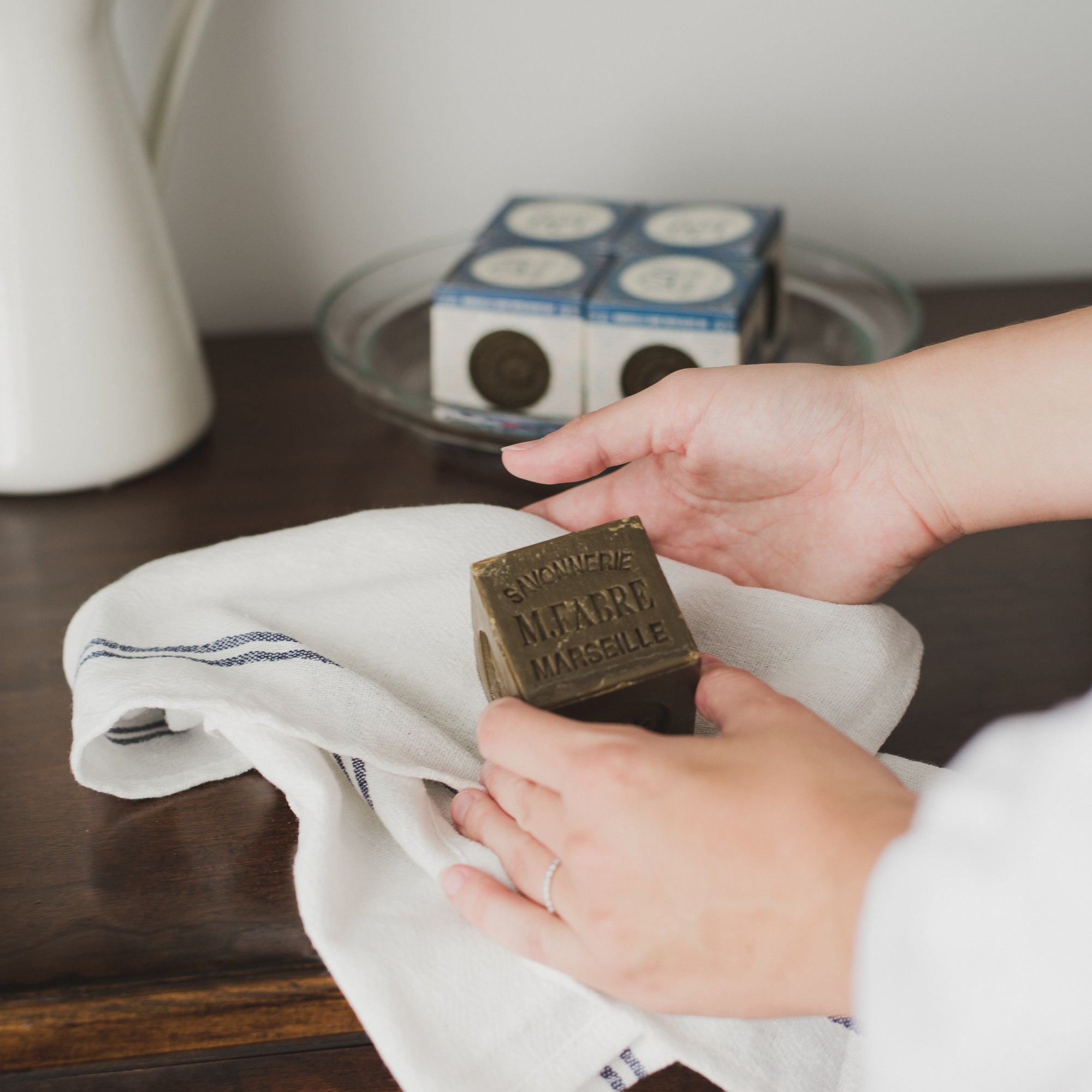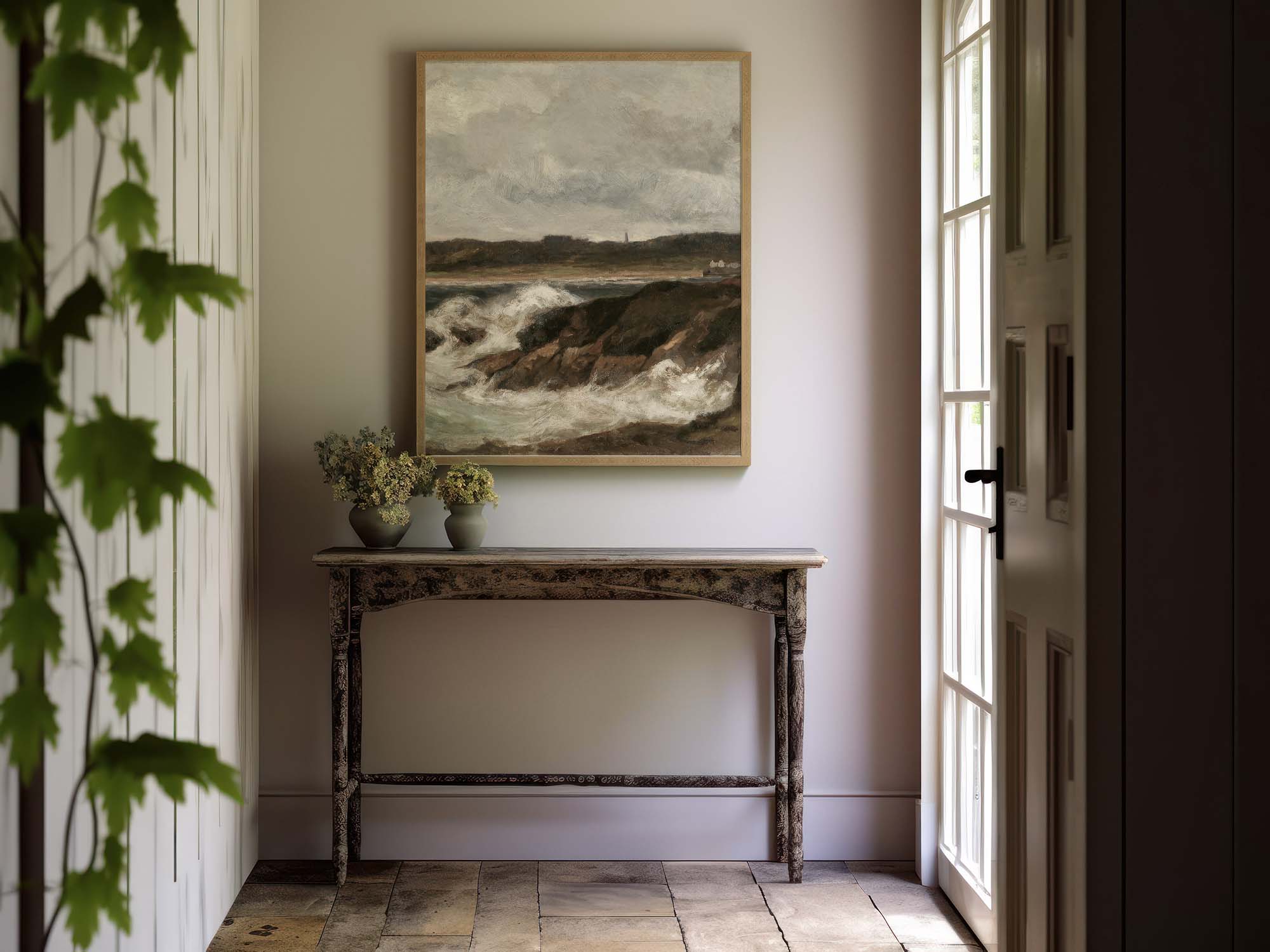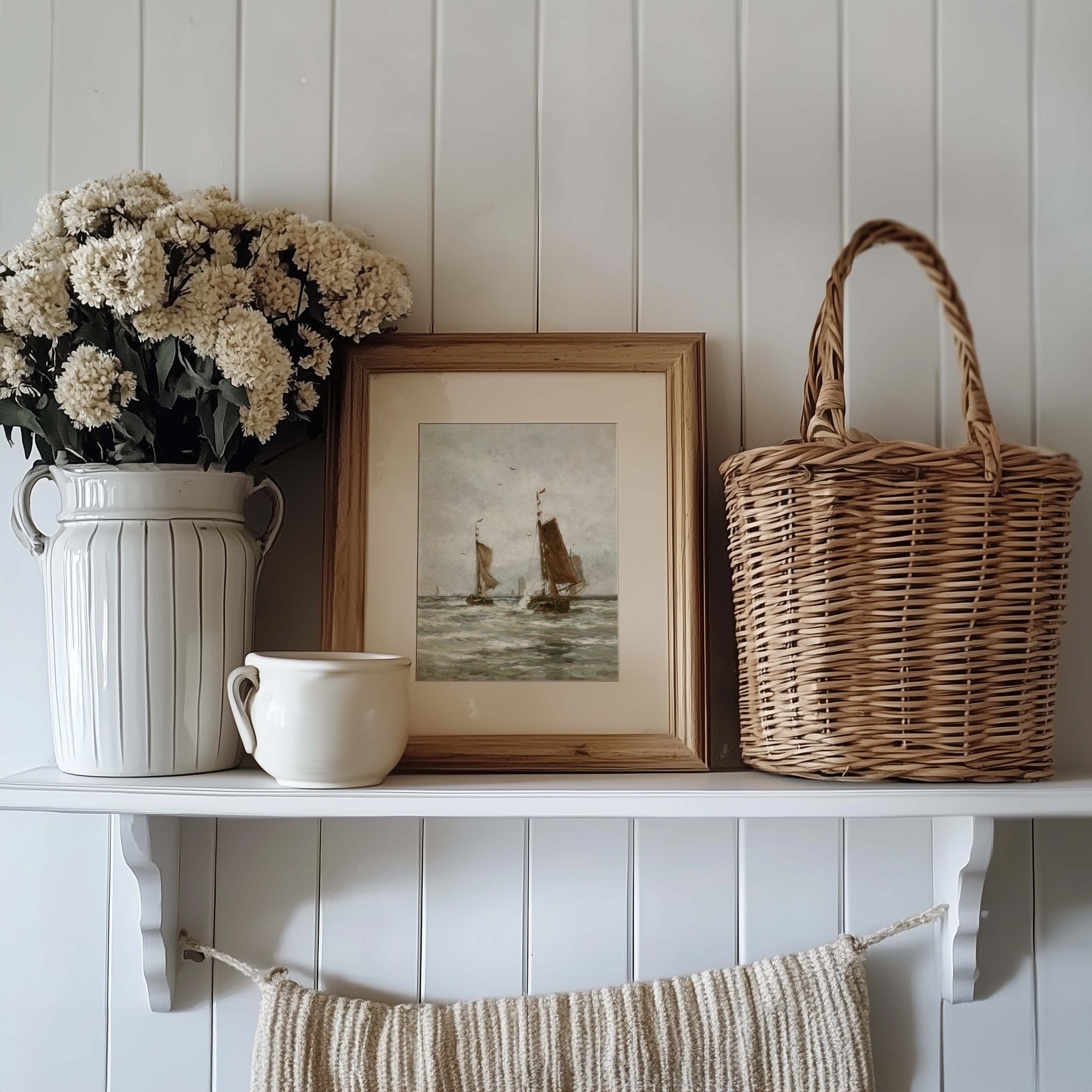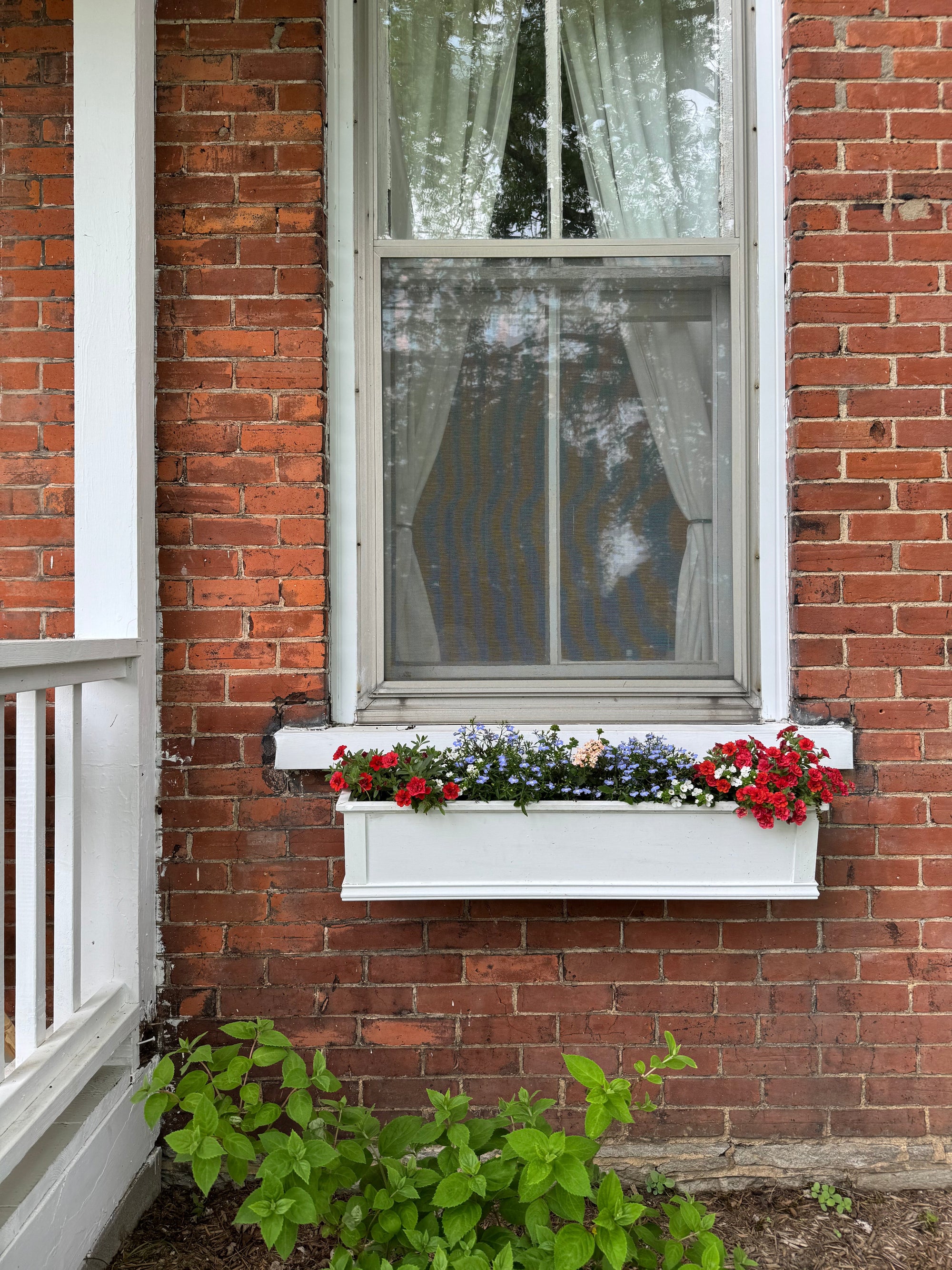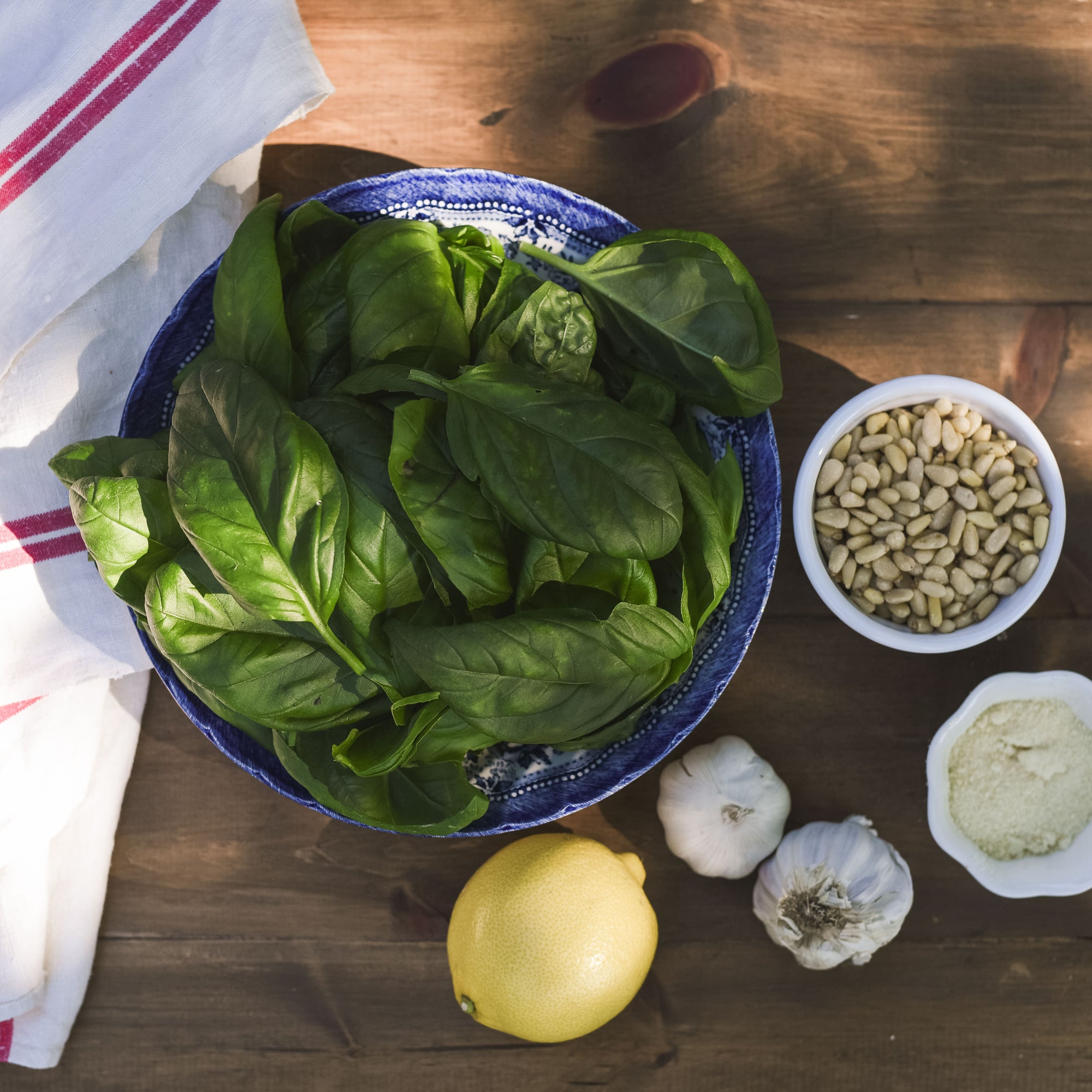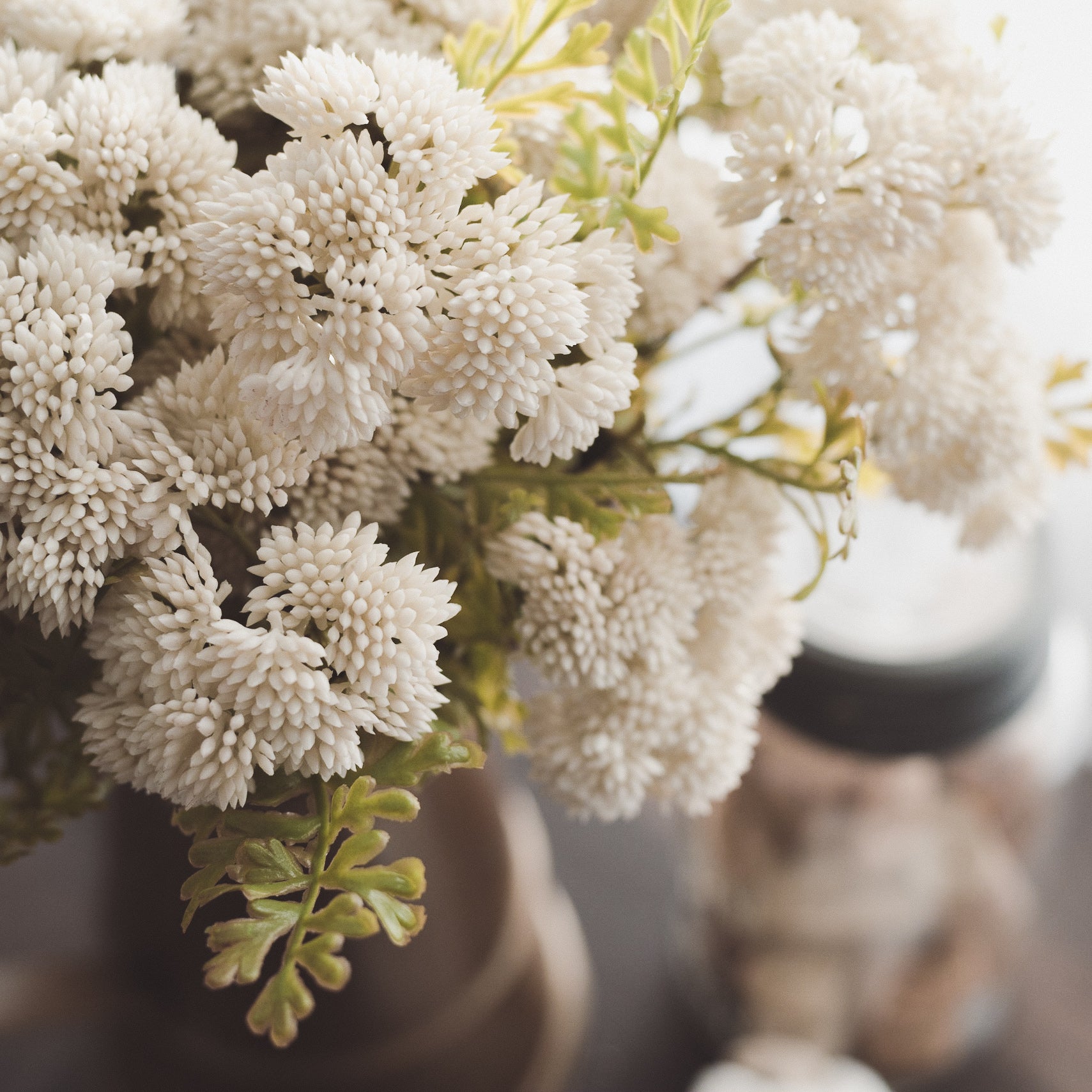In early 2023 I began painting again as a way to introduce custom artwork and patterns into our business and shop. It's a passion I am still working on and continuing to nurture in the rare spare time that I have with running a business, household and taking care of a toddler.
When I started down the path of oil painting I was extremely intimidated by the use of solvents. I really did not want to introduce fumes or toxins into our home while painting in our dining room turned studio. After careful research I found that I could minimize or completely eliminate the use of solvents during the painting process but the brush cleaning aspect was going to be a little more tricky. I had read that soap can be controversial on the brushes and impact their longevity but I was determined to find a way to eliminate solvents from the brush cleaning process.
After trying out different techniques and committing to the most natural route possible, I found the perfect way to clean my oil brushes without needing turpentine, paint thinner or Gamsol.
I can confidently say that I found a secret cleaning weapon that every single art studio needs on hand. An eco-friendly non toxic soap that your hands, studio AND brushes will thank you for.
Drum roll please....
Secret Weapon Brush Cleaner

Savon de Marseille - a classic and historic french soap made from olive oil. This four ingredient powerhouse soap has been used for centuries to clean french homes, kitchens, and linens. Its a product we have carried in our shop since we first opened our doors in 2021. It's a soap I reach for when I need to remove stains, clean sinks, BBQs, floors, caked on grime and dishes. I've even used it on my body and our toddler with moisture rich and sensitive skin loving results.
Since I've used the soap to clean makeup brushes and watercolour brushes before, I knew right away I had to try this soap on my oil brushes - and I am so glad I did!
Before bringing the brushes to the sink with soap and water, I remove as much paint as possible from my brushes with a paper towel. You'd be surprised how much you can eliminate with a dry paper towel. If you are concerned about the remaining paint going down the drain you can wet your brush and swirl it on the soap in a circular motion and back and forth motion to loosen the paint and then wipe it on the paper towel. Wet your brush again with water and repeat the swirling and wiping process until paint no longer comes off the brush onto the paper towel. Then you can give your brush one thorough rinse with water in the sink.
Cleaning Process
1) Remove as much paint from the brush as possible with dry paper towel.
2) Wet the brush with water and shut the water of.
3) Rest your soap on a dish or plate next to or in the sink but not under or near running water.
4) Swirl your wet brush into the soap, wetting it as needed to get the soap activated. I like to do circular or windshield wiper movements on the soap with my brush.
5) Once you see the paint start to separate from the bristles rinse it thoroughly and then shut the water off.
6) Take your damp brush back to the soap and repeat steps 4-5 as much times as needed. I do this cycle repeatedly until the brush is clean. I do not put the soap under water or wet the soap from the tap. The soap is activated from the wet brush.
7) At the end of the cleaning session you can rinse the brick of soap under water to remove any paint residue, and then let it dry out completely in your favourite soap dish or small saucer before your next use. Avoiding direct water exposure will prevent the soap from becoming slimy and will also increase the longevity of your soap.
Notes: I use my fingers to massage the soapy brush and work the soap into the bristles to help get the pigment out that can accumulate close to the handle of the brush. I do not use cadmium pigments so I don't use gloves while cleaning my brushes. You could always use rubber gloves and swirl the soapy brush in your palm for deeper and faster cleaning.
Savon de Marseille is extremely affordable compared to other soap based brush cleaners, and its oil properties make cleaning effective yet nourishing to the bristles of your brush and your hands. Because of its versatility you can use this soap for more than just cleaning your brushes. You can use it to clean ANYTHING and I have a whole other blog post here that walks you through this powerhouse in more detail.
You can also find our entire collection of savon de Marseille here.
We hope you try out this eco-friendly alternative to solvents and hope you fall in love with the versatility of savon de Marseille as much as we have.

